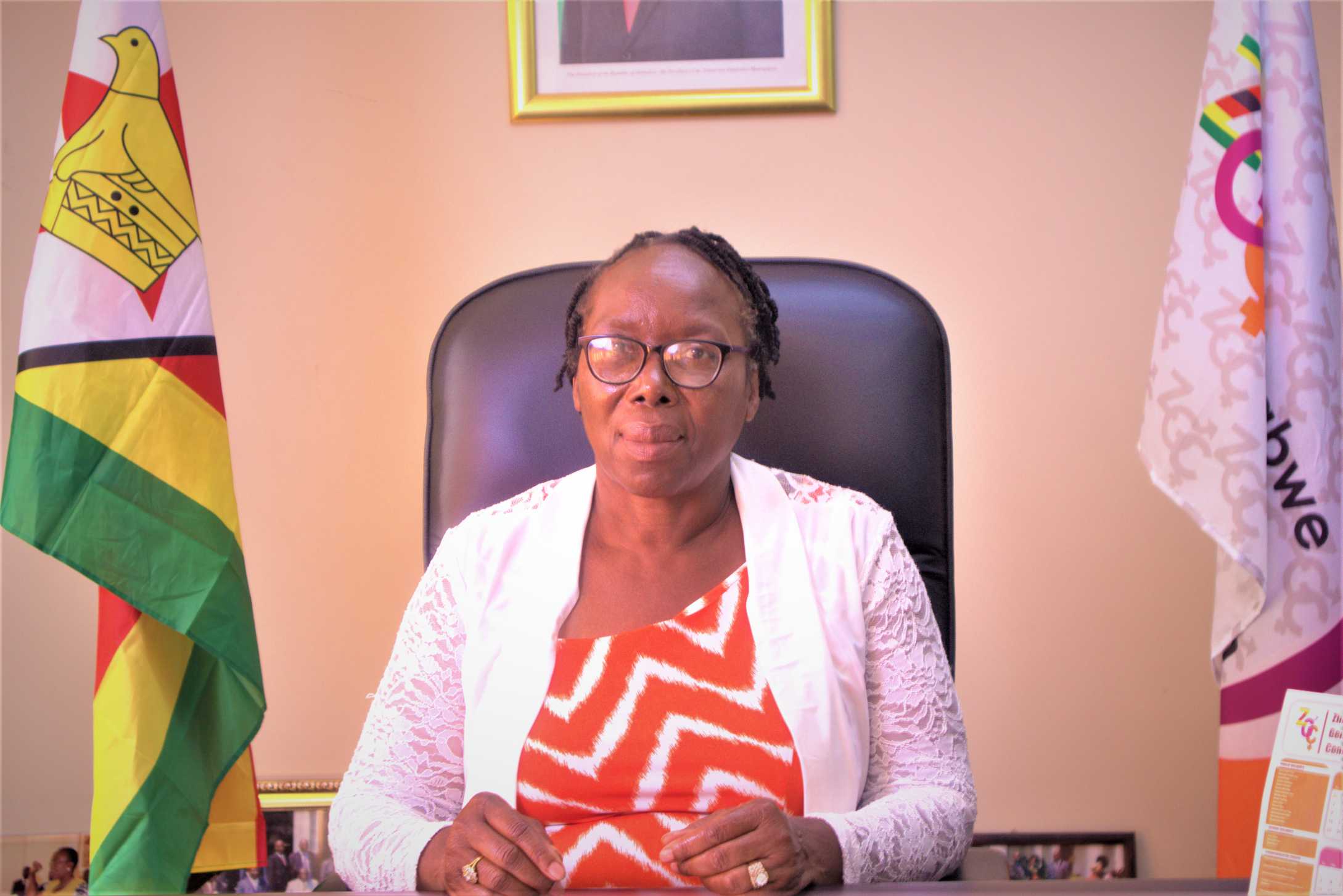|
Getting your Trinity Audio player ready…
|
By Hillary Munedzi and Byron Mutingwende
Inconsistent constitutional policies coupled with gender-blind political parties have led to decreased women representation which has seen out of 28 parliamentary seats contested in the 26 March 2022 by-election, only five women winning.
Speaking during the Multi-Party Gender Conference on Women’s Political Participation in Harare today, the Chairperson of Zimbabwe Gender Commission, Commissioner Margret Mukahanana Sangarwe said equitable participation of women in politics and decision-making is the essence of sustainable democracy. As such, she said women must be equal partners in the democratic process as activists, elected officials, and constituency representatives because their contribution is crucial to building a strong and vibrant society
“It is, however, worrying to note that statistics from the 2018 harmonized elections reveal a regressing low women representation with 48% in the Senate, 31.5% in the National Assembly (85 women, 60 of them being under the quota making it effectively 11.9% against 185 male MPs) and a mere 13.3% in Local government.
“The 26 March 2022 by-election results further reinforce the position that men are the main actors in electoral processes. Out of the 28 parliamentary seats contested, only five women won while at the local government level, only 19 females were elected as councillors against 103 elected male counterparts,” said Commissioner Margret Mukahanana Sangware.
Speaking at the same meeting, Ms. Fatou. A. Lo, the UN Women Zimbabwe, underscored the importance of women’s political participation.
She said the equitable participation of women in politics and decision-making is the essence of sustainable democracy. As such, she said women must be equal partners in the democratic process as activists, elected officials and constituents because their contribution is crucial to building a strong and vibrant society.
In that regard, women’s equal political participation and representation are key to unlocking the transformational change needed to achieve a sustainable future. She said numbers are extremely important in challenging stereotypes and changing mindsets and negative perceptions.
“In addition, women leaders must aim to wield influence, use their voice and platforms to transform systems and help build more gender-equal societies. It has been shown that countries with a higher level of female political influence, record lower levels of gender discrimination in social institutions, less discrimination in the family code, and greater access to rights, assets and to financial services for women and girls.
“We also know that women’s political leadership results in better outcomes for women and girls, as well as for the whole of society. By fostering progress in policy areas that are vital for social development, economic growth and development,” Ms Lo said.
She gave statistics that in Tanzania, Kenya, Uganda, and South Africa, a number of legislative changes attributed to female parliamentarians have been recorded.
The areas of legislation are labour, sexual offences, domestic violence, and child care. Similarly, research on local councils in India discovered that the number of drinking water projects in areas with women-led councils was 62% higher than in those with men-led councils. In Norway, a direct causal relationship between the presence of women in municipal councils and childcare coverage was found.
Generally, women’s participation in political processes tends to lower levels of corruption, improve peace processes, deliver more inclusive decisions, enable different voices to be heard and create different solutions.
Indeed, in the words of Michelle Bachelet, the former Executive Director of UN Women, “….no enduring solution to the challenges of our day- from climate change to political and economic stability to ending poverty- can be solved without the full participation of girls and women.”
However, from the local to the global level, women’s leadership and political participation are restricted. Women are underrepresented in leadership positions in all spheres:
- Only 21% per cent of government ministers globally are women, with only 14 countries having achieved 50 per cent or more women in cabinets. At the current rate, it will take another 50 years to achieve gender parity in ministerial positions.
- Only 26% of all national parliamentarians globally are women and only 32 countries in the world have over 40% women representation in parliament, five of which are in Africa. At the current rate of progress, gender parity in national legislative bodies will not be achieved before 2063.
- Data from 136 countries shows that women constitute 34% of elected members in local deliberative bodies. Only 22 countries have reached 40 per cent representation of women in local government. In Sub-Saharan Africa, women’s representation in local deliberative bodies sits at 25% as of January 2022.
The UN senior official said the low political representation of women remains a significant setback to the achievement of democracy and a failure to adhere to international and regional normative standards on gender equality as articulated in CEDAW, Beijing Platform of Action, Maputo Declaration and SADC Protocol among others, of which Zimbabwe has committed to uphold.
“We are all aware of the barriers that women face when they engage in politics, some of these include: side-lining and discrimination in political parties, all forms of violence and intimidation, negative coverage in the media, lack of financial resources to engage meaningfully and lack of political will to genuinely promote gender equality and women’s political participation.
“The challenge the world over, including in Zimbabwe, is to overcome these barriers so that women can equally participate in public leadership and decision-making and make gender equality a reality,” she added.
A Charter on Women’s Political Participation and Decision Making was signed and it is desirous of Zimbabwe’s full and comprehensive adherence to its constitutional obligations, as well as its commitments to regional and international agreements, protocols, declarations, and treaties which call for gender equality.
Other partners include the European Union, Hivos, the Women’s Academy for Leadership and Political Excellence (WALPE), and the Women’s Coalition of Zimbabwe among others.
